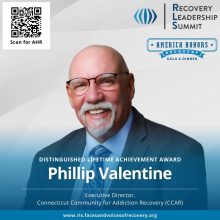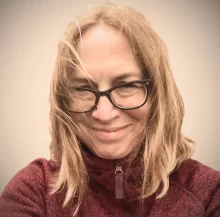I’m really pleased to post the second of our Recovery Voices Teasers, that of James Deakin, the Founder of North Wales Recovery Communities (NWRC) in Bangor, North Wales. Having edited the film of my colleague Wulf Livingston’s ‘s interview of James, and then interviewed James myself, I’m really impressed by him and what he and his colleagues have achieved at NWRC.
I thoroughly enjoyed my visit with Wulf to NWRC’s Penrhyn House and to their restaurant/cafe Bwyd Da Bangor (Good Food Bangor) in September last year. I had a really good breakfast at the latter. Sadly, James was out of town. I look forward to meeting him on my next visit. For now, we’ll be chatting on Zoom.
James has been in recovery for 15 years and is now sharing his experiences of active addiction and offending to support other people to bring a positive change to their own lives. He believes strongly in the concepts of mutual aid and shared experience, and these are underlying foundations of NWRC, which he founded in 2014.

 A huge congratulations to Phil Valentine of Connecticut Community of Addiction Recovery (CCAR), who recently received a Distinguished Lifetime Achievement Award from
A huge congratulations to Phil Valentine of Connecticut Community of Addiction Recovery (CCAR), who recently received a Distinguished Lifetime Achievement Award from  I find the history of drug use quite fascinating. Here’s a brief history focusing on one class of drug.
I find the history of drug use quite fascinating. Here’s a brief history focusing on one class of drug. I am really pleased to introduce the fourth of our Recovery Voices,
I am really pleased to introduce the fourth of our Recovery Voices,  I recently came across the following article about North Wales Recovery Communities (NWRC) from
I recently came across the following article about North Wales Recovery Communities (NWRC) from  Ten years ago today I launched these words into the virtual ether:
Ten years ago today I launched these words into the virtual ether: In the third of our
In the third of our 